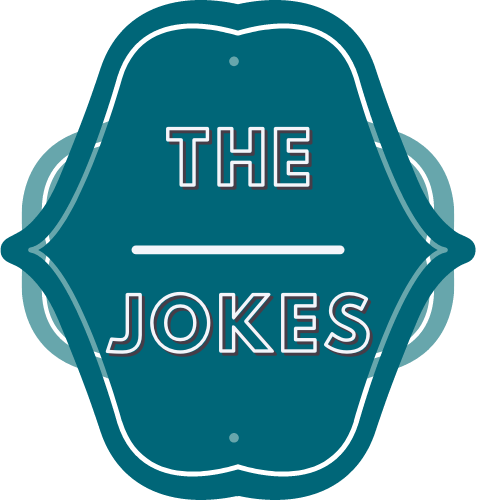Diving into philosophical literature offers a remarkable journey through humanity’s most profound questions and enduring ideas. Whether you’re just beginning to explore existential inquiries or you’re a seasoned thinker seeking fresh perspectives, the right reading material can illuminate pathways to understanding that reshape how you see the world. Building a personal library of philosophical works allows you to engage with timeless wisdom and contemporary debates, creating a foundation for both intellectual growth and practical reflection. The adventure of selecting the perfect texts to challenge and expand your thinking is both exciting and deeply rewarding.
Essential Philosophical Texts for Beginners and Enthusiasts
The landscape of philosophical writing spans thousands of years, offering readers an extraordinary wealth of material to explore. For those new to the discipline, certain foundational works provide accessible entry points whilst maintaining intellectual rigour. Thomas Nagel’s exploration of life’s fundamental questions presents complex ideas in straightforward language, making abstract concepts tangible for readers without prior background. Similarly, Plato’s dialogues featuring Socrates demonstrate how philosophical thinking develops through conversation and questioning, a method that remains vital to the discipline today. The platform www.callecultura.es hosts numerous discussions about how these classic texts continue to resonate with modern audiences, offering insights into why certain works maintain their relevance across generations.
Classic works that shaped western thought
Understanding the evolution of Western philosophy requires engagement with texts that fundamentally altered how subsequent thinkers approached knowledge, ethics, and existence. Theodor Adorno’s reflections on everyday life reveal how social structures influence personal unhappiness, offering readers a framework for understanding their own experiences within broader cultural contexts. The work combines philosophical rigour with deeply personal observation, demonstrating how abstract theory connects to lived reality. Meanwhile, thinkers like Søren Kierkegaard examined public discourse and authenticity with a critical eye that remains startlingly relevant to contemporary debates about communication and genuine engagement. Robin George Collingwood’s autobiographical approach to philosophy shows how intellectual development intertwines with personal history, making abstract ideas feel intimately connected to individual experience.
Gillian Rose’s meditation on philosophy whilst confronting terminal illness demonstrates extraordinary courage and intellectual commitment. Her work reflects on existence and meaning with unflinching honesty, refusing to separate philosophical inquiry from the embodied reality of human suffering and joy. This integration of thought and experience represents a tradition within philosophy that values wisdom alongside formal argumentation. Similarly, Iris Murdoch’s fictional critique of Martin Heidegger’s ideas shows how literature can engage with philosophical concepts in ways that academic writing sometimes cannot, creating narrative spaces where abstract theories meet complex human situations. These works collectively illustrate how philosophy extends beyond academic boundaries to touch every aspect of human experience.
Contemporary philosophy books for modern minds
Recent decades have produced philosophical works that address distinctly modern concerns whilst drawing on classical traditions. Philip K. Dick’s account of religious visions blurs boundaries between philosophy, autobiography, and speculative fiction, creating a text that challenges conventional categories whilst exploring profound questions about reality and consciousness. Bruce Chatwin’s investigation into human nomadism combines anthropology, philosophy, and travel writing to suggest fundamental truths about human nature and our relationship with landscape and movement. These works demonstrate how contemporary philosophical expression often resists strict generic boundaries, instead embracing hybrid forms that reflect the complexity of modern existence.
John Maxwell Coetzee’s examination of animal consciousness and ethics poses challenging questions about the limits of philosophical discourse versus literary imagination. The text suggests that certain truths about experience and ethics might be more fully captured through narrative and character than through traditional argumentative structures. Similarly, satirical approaches to internet culture, whilst seemingly frivolous, can expose underlying philosophical assumptions about communication, identity, and authenticity in digital spaces. These contemporary interventions show philosophy adapting to new cultural landscapes whilst maintaining its commitment to questioning assumptions and exploring fundamental truths. The intersection of cricket and West Indian identity explored by Cyril Lionel Robert James demonstrates how philosophy emerges from specific cultural contexts, offering insights that extend far beyond their immediate subjects.
Building your personal philosophy reading list

Creating a meaningful philosophical reading programme requires thoughtful consideration of both personal interests and intellectual breadth. Rather than approaching philosophy as a curriculum to be completed, successful readers often develop organic relationships with texts, allowing one work to suggest connections to others. Starting with broad introductory materials helps establish foundational concepts before diving into more specialised areas like metaphysics, epistemology, or existentialism. Reading lists organised by historical period or philosophical school provide structure, whilst maintaining flexibility to follow personal curiosity ensures sustained engagement. Many readers find value in alternating between historical texts and contemporary works, creating dialogues across centuries that illuminate how philosophical questions evolve whilst retaining core concerns.
Choosing books that challenge your worldview
The most transformative philosophical reading often comes from works that fundamentally challenge existing assumptions and comfortable beliefs. Selecting texts that represent perspectives different from your own creates opportunities for genuine intellectual growth rather than mere confirmation of existing views. Works exploring Stoicism offer practical frameworks for managing difficulty and cultivating resilience, whilst existentialist literature confronts questions of meaning and freedom with sometimes uncomfortable honesty. Engaging with thinkers like Friedrich Nietzsche requires willingness to consider radical critiques of conventional morality and truth, an exercise that can prove unsettling yet profoundly valuable. Similarly, exploring non-Western philosophical traditions, including the teachings of Confucius and other Eastern thinkers, broadens understanding beyond the sometimes narrow focus of European philosophy.
Hannah Arendt’s political philosophy challenges readers to reconsider concepts of power, violence, and human action in ways that remain urgently relevant to contemporary politics. Her work demands active engagement, refusing to offer simple answers whilst providing frameworks for deeper understanding. Books recommended by scholars like Simon Blackburn on truth, Daniel Dennett on free will, and David Lewis on possible worlds represent contemporary analytical philosophy at its most rigorous and thought-provoking. These works require intellectual effort but reward careful reading with precision and clarity that illuminate complex problems. Paul Feyerabend’s challenge to scientific methodology and Hilary Putnam’s exploration of mind and language demonstrate how philosophy continually questions its own methods and assumptions, modelling the critical thinking that makes the discipline vital.
Creating a Balanced Reading Programme Across Different Schools of Thought
Developing comprehensive philosophical understanding requires exposure to diverse schools of thought rather than exclusive focus on a single tradition. Balancing reading between analytical and continental philosophy, between ancient and modern works, between Western and non-Western traditions creates a richer, more nuanced understanding of how philosophy addresses fundamental questions. Some readers organise their reading chronologically to understand historical development, whilst others prefer thematic approaches that explore specific questions across different periods and cultures. Both methods offer valuable perspectives, and many successful reading programmes incorporate elements of each approach.
Platforms offering curated reading lists organised by subject and philosopher provide helpful guidance for readers constructing personal programmes. These resources often include materials on metaphysics, epistemology, ethics, and more specialised areas like philosophy of language and free will. Weekly philosophical reflections distributed to engaged communities help maintain consistent engagement with ideas, turning philosophical reading from occasional activity into sustained practice. The social enterprise model adopted by some philosophical resources demonstrates commitment to making complex ideas accessible to broader audiences beyond traditional academic settings. Participating in these communities, whether through online platforms or local discussion groups, enhances individual reading by providing opportunities to test understanding and encounter alternative interpretations.
Ultimately, the most successful philosophical reading programme reflects personal interests whilst remaining open to unexpected discoveries. Works that blend philosophy with autobiography, literature, cultural criticism, and other forms demonstrate how philosophical thinking permeates all aspects of human experience. Whether exploring nomadic human nature through travel writing, examining cricket as cultural philosophy, or confronting existential questions through fiction, these hybrid texts show philosophy’s remarkable flexibility and relevance. Building your personal library becomes an ongoing conversation between reader and tradition, between contemporary concerns and timeless questions, creating resources for lifelong intellectual engagement and growth.

